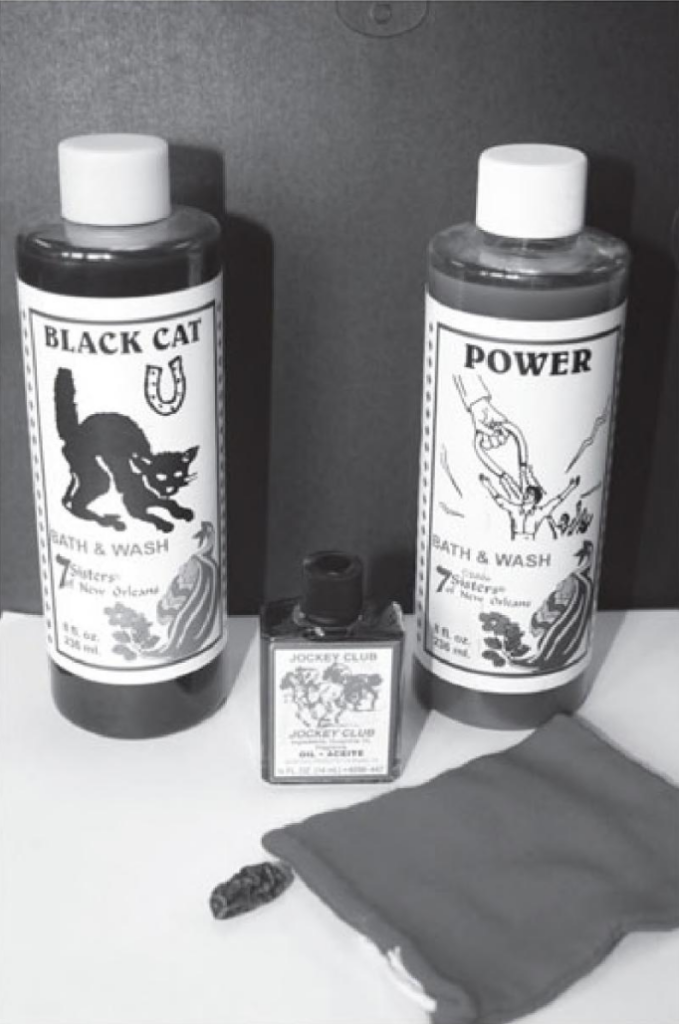The following article is written by Tony Kail, author of A Secret History of Memphis Hoodoo
The practice of Hoodoo, a set of folk practices incorporating magic, spirituality and healing has a distinct heritage in the Memphis and Mid-South region. For hundreds of years the use of roots, herbs and charms have been a fixture in the Bluff City. It’s earliest presence seen in the late 1800s as Africans who were taken as slaves were taken from their homeland and relocated throughout the Mississippi Delta. After years of struggling to survive amidst racial violence and segregation the culture of hoodoo has managed to maintain a presence in Memphis.
Memphis has the distinction of being home to a number of important personalities, events and places that are significant in hoodoo history. The large population of rootworkers and conjurers who practiced hoodoo was evident as famed folklorist Harry Middleton Hyatt chose Memphis as part of his 1930’s epic study ‘Hoodoo Conjuration, Witchcraft and Rootwork’ considered to be the ‘bible’ of hoodoo folklore.
Memphis became known nationally as a city where hoodoo prevailed. Sports teams were often quick to refer to Memphis teams as having the power to ‘jinx’ and Memphis-based coaches claimed to have used hoodoo curios like black cat bones and horseshoes to bring luck to local sports teams. Rootworkers like Beale Street’s ‘Doctor Scissors’ and local conjurer ‘Uncle Dub’ became known throughout the city for their ability to heal and perform magic.

Famed Memphis blues artists like W.C. Handy, The Memphis Jug Band, Lillie Mae Glover and Memphis Minnie all wrote about hoodoo in their song lyrics. Glover became known around Beale Street as a practitioner of hoodoo and actually provided spiritual services for many local blues artists.
Memphis was home to several Hoodoo product manufacturing companies. Companies like Lucky Heart Cosmetics, Keystone Laboratories, Collins Laboratories and others became known around the world as suppliers of oils, powders and various magical curios. Numerous shops around Memphis including Beale Street’s oldest business A. Schwab became markets for mojo related merchandise.
Through the years Memphis became a sanctuary for numerous African-American spiritual temples and churches that incorporated root working into their practices. The historically significant New Orleans based spiritual church ‘The Eternal Life Christian Spiritualist Church’ had a branch in Memphis in the 1940’s established by an associate of founder Mother Leafy Anderson.
Memphis legend trippers are all too familiar with a community falsely labeled as ‘Voodoo Village’ in South Memphis. For years teenagers have taken dates out to the property in search of bizarre rituals and occult ceremonies. The truth is that the property has nothing to do with Voodoo or dark activities but is a spiritual temple known as the ‘Saint Paul’s Spiritual Temple’ that honors African and African-American based spiritual traditions including rootwork.
Memphians and visitors to Memphis may be surprised to learn of the rich cultural history of hoodoo and its significance to the city. Hoodoo related curios and trinkets can still be found in shops on Beale and some remaining neighborhood pharmacies still carry herbs used in forms of traditional rootwork healing. While the appearance of many of these products seem to conjure a certain feeling of nostalgia it is important to keep in mind that hoodoo and rootwork are living cultures. Many Memphians still practice these traditions as serious forms of healing and spirituality. Images of blues singers with black cat bones and mojo bags are popular representations of southern hoodoo but it is important to respect that they are remnants of a sacred system of healing and practice that was used to survive and thrive by those once taken from their homes in Africa.

